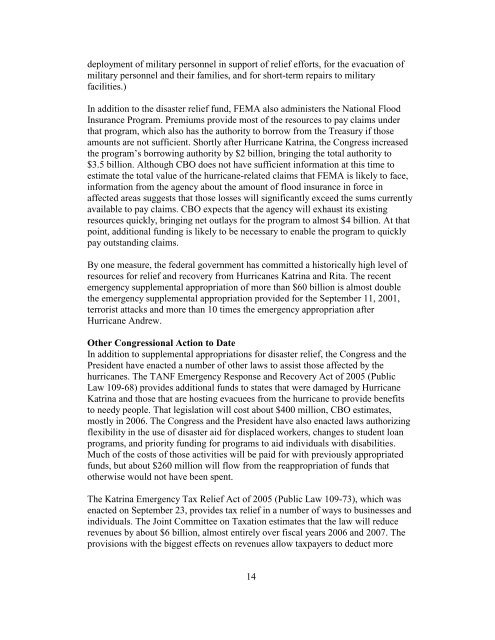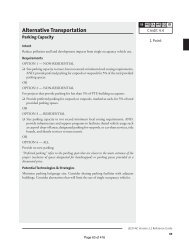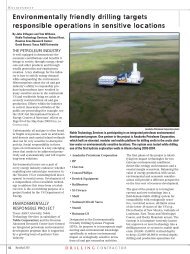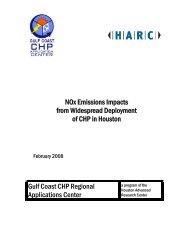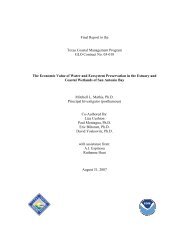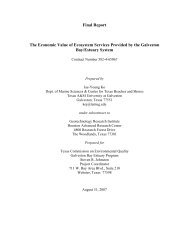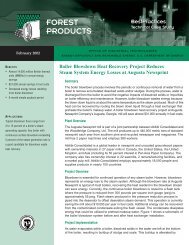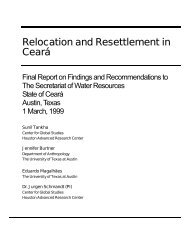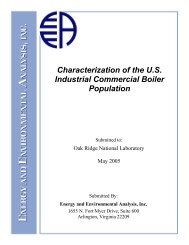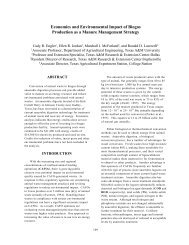Macroeconomic and Budgetary Effects of Hurricanes Katrina and Rita
Macroeconomic and Budgetary Effects of Hurricanes Katrina and Rita
Macroeconomic and Budgetary Effects of Hurricanes Katrina and Rita
Create successful ePaper yourself
Turn your PDF publications into a flip-book with our unique Google optimized e-Paper software.
deployment <strong>of</strong> military personnel in support <strong>of</strong> relief efforts, for the evacuation <strong>of</strong><br />
military personnel <strong>and</strong> their families, <strong>and</strong> for short-term repairs to military<br />
facilities.)<br />
In addition to the disaster relief fund, FEMA also administers the National Flood<br />
Insurance Program. Premiums provide most <strong>of</strong> the resources to pay claims under<br />
that program, which also has the authority to borrow from the Treasury if those<br />
amounts are not sufficient. Shortly after Hurricane <strong>Katrina</strong>, the Congress increased<br />
the program’s borrowing authority by $2 billion, bringing the total authority to<br />
$3.5 billion. Although CBO does not have sufficient information at this time to<br />
estimate the total value <strong>of</strong> the hurricane-related claims that FEMA is likely to face,<br />
information from the agency about the amount <strong>of</strong> flood insurance in force in<br />
affected areas suggests that those losses will significantly exceed the sums currently<br />
available to pay claims. CBO expects that the agency will exhaust its existing<br />
resources quickly, bringing net outlays for the program to almost $4 billion. At that<br />
point, additional funding is likely to be necessary to enable the program to quickly<br />
pay outst<strong>and</strong>ing claims.<br />
By one measure, the federal government has committed a historically high level <strong>of</strong><br />
resources for relief <strong>and</strong> recovery from <strong>Hurricanes</strong> <strong>Katrina</strong> <strong>and</strong> <strong>Rita</strong>. The recent<br />
emergency supplemental appropriation <strong>of</strong> more than $60 billion is almost double<br />
the emergency supplemental appropriation provided for the September 11, 2001,<br />
terrorist attacks <strong>and</strong> more than 10 times the emergency appropriation after<br />
Hurricane Andrew.<br />
Other Congressional Action to Date<br />
In addition to supplemental appropriations for disaster relief, the Congress <strong>and</strong> the<br />
President have enacted a number <strong>of</strong> other laws to assist those affected by the<br />
hurricanes. The TANF Emergency Response <strong>and</strong> Recovery Act <strong>of</strong> 2005 (Public<br />
Law 109-68) provides additional funds to states that were damaged by Hurricane<br />
<strong>Katrina</strong> <strong>and</strong> those that are hosting evacuees from the hurricane to provide benefits<br />
to needy people. That legislation will cost about $400 million, CBO estimates,<br />
mostly in 2006. The Congress <strong>and</strong> the President have also enacted laws authorizing<br />
flexibility in the use <strong>of</strong> disaster aid for displaced workers, changes to student loan<br />
programs, <strong>and</strong> priority funding for programs to aid individuals with disabilities.<br />
Much <strong>of</strong> the costs <strong>of</strong> those activities will be paid for with previously appropriated<br />
funds, but about $260 million will flow from the reappropriation <strong>of</strong> funds that<br />
otherwise would not have been spent.<br />
The <strong>Katrina</strong> Emergency Tax Relief Act <strong>of</strong> 2005 (Public Law 109-73), which was<br />
enacted on September 23, provides tax relief in a number <strong>of</strong> ways to businesses <strong>and</strong><br />
individuals. The Joint Committee on Taxation estimates that the law will reduce<br />
revenues by about $6 billion, almost entirely over fiscal years 2006 <strong>and</strong> 2007. The<br />
provisions with the biggest effects on revenues allow taxpayers to deduct more<br />
14


